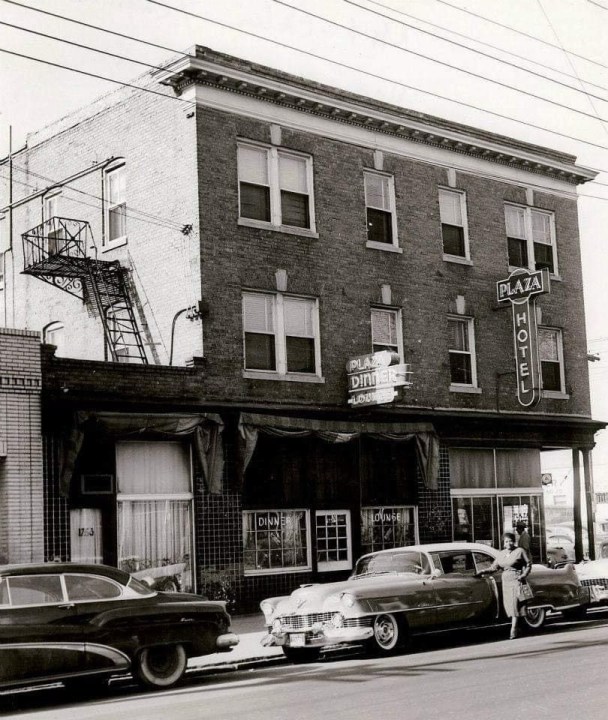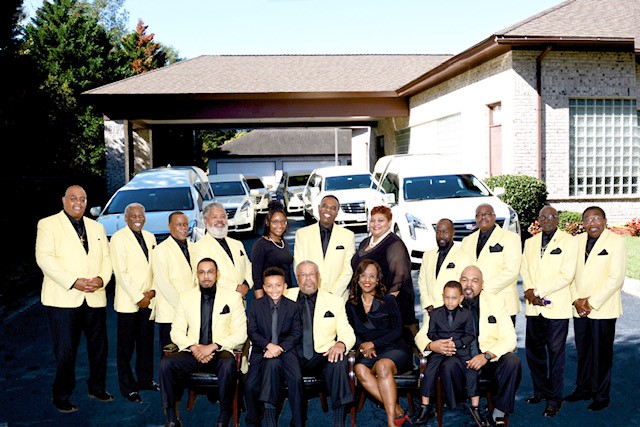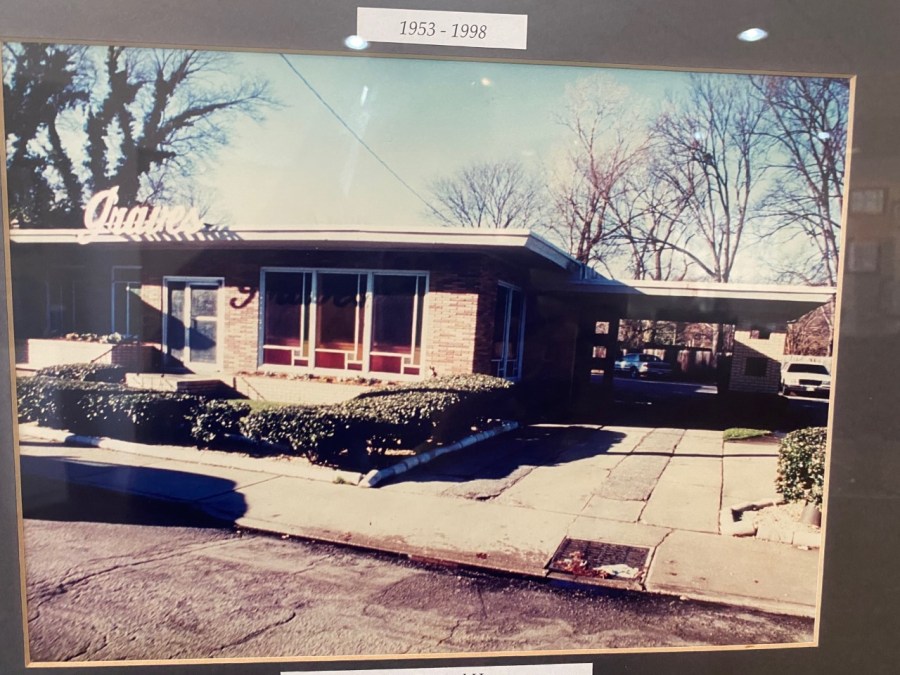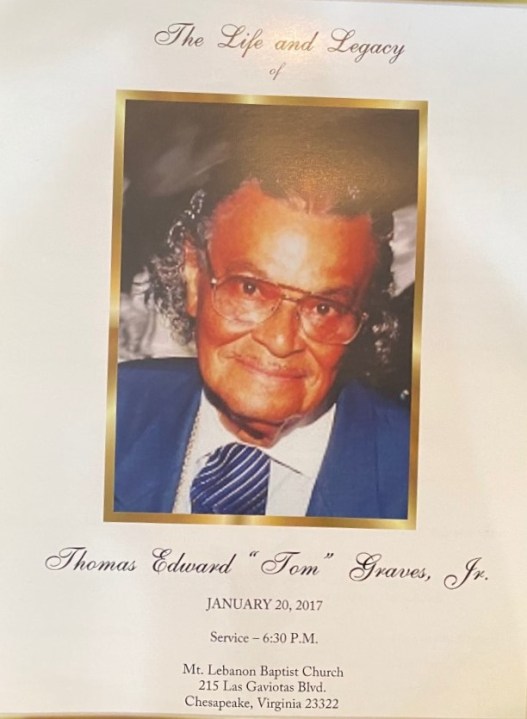NORFOLK, Va. (WAVY) — Block after block the Church Street of today has few images that harken back to the glory days of what was the business and social scene for the Black community in Norfolk after World War II.
“It was booming. You had a hotel for people to stay, people of color, grocery stores, movie theaters clothiers, and furniture stores on Church Street. You didn’t have to go anywhere,” said Tommy Graves, son of Graves Funeral Home founder Tom Graves.

(Photo courtesy: Keith Paige McEachin)
Today the historic Attucks Theater bookends the south end of Church Street while Graves Funeral Home bookends the North.
Graves family members believe their establishment is the last of the original businesses that lined the historically Black business district.

The original Graves building was erected in 1953 after a financial setback was expected in Jim Crow’s south. Family members say a local bank told Tom Graves, a decorated former soldier, it would loan him $22,000 for the construction of what was a new-age style building with a flat roof.

“When it came time to consummate the loan, they reneged on him,” said Tommy Graves.
A North Carolina-based insurance company stepped in and funded the construction. It was a bold move in a period where many funeral homes were just that, a home modified to handle the remains of the dead while serving as the residence of the funeral director.
“We were the first funeral home built from scratch to bury the African American community,” said Mildred Graves, who co-founded the business with her husband Tom.

It was a nice concept and a nice building, but six other funeral homes were also on Church Street at the time. Several family members had to pitch in to help the former soldier and his wife, who worked as a teacher.
“They supported us for two years; plus I was working and I contributed,” said Mildred.
Family members say in 1955, a boating disaster in the Chesapeake Bay changed the course of history for Graves Funeral Home. In the middle of the night, Tom Graves got the call to handle the remains of the Blacks who died.
“My father was the benefactor of every African American who died on that boat and from that point forward the business never looked back,” said Tommy Graves III.
By 1991 Graves needed to expand, so once again he turned to a local bank, and once again he was denied a loan, according to Tommy Graves.
Tom Graves died on January 13, 2017.

Former NFL player Tommy and his sons, Thomas IV and Jason Graves, now operate the business that is dealing with a disaster of another kind. In July 2020 they handled the remains of ten people who died for the coronavirus. The January death toll could eclipse the summer’s peak.

Lorraine, a former professional ballet dancer, is Tom and Mildred’s daughter. In a side-by-side Zoom interview with her mother, Lorraine offered an assessment of how the pandemic has affected the family business and the families they serve.
“It’s quite scary; we’re not out of the woods yet. Hopefully, with this new administration coming in we will see a light at the end of the tunnel,” said Graves.
Jason Graves, the younger son of Tommy Graves, is mindful of the company’s past while helping to navigate the turbulent water of the pandemic. “It was a disaster that kind of catapulted our business to where it is today and now the coronavirus pandemic has catapulted us to even greater heights; again, it’s unfortunate that the country is dealing with this; but, we have to deal with it and we have to deal with in a manner in which we can still serve our families with professionalism.”
Thomas IV has a message for Thomas V and his brother Aston.
“Be true to himself, be respectful; be compassionate and know that he comes from a long line of people that put self on the line to pave the way for him to have the same thing.”

The Graves legacy also includes politics. Tom and Mildred, who is now 101 years old, played a role in the 1968 election of Joe Jordan as Norfolk’s first Black city councilman. Daughter-in-law Angelia Williams Graves served on City Council and is now a new member of the General Assembly.









































































































